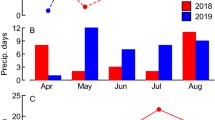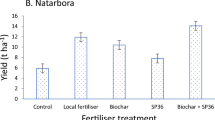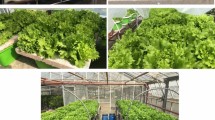Abstract
SEVEN years ago Prof. W. F. Gericke, of the University of California, published an article in Science under the title "Hydroponics—Crop Production in Liquid Culture Media", and he followed this up in 1940 by a book, "Complete Guide to Soil-less Gardening". The idea attracted certain people very strongly, and before long it was necessary for some of the staff of the University to point out that some at least of the claims that were being put forward lacked good evidence. The method was critically but impartially investigated in Great Britain by Prof. R. H. Stoughton, of the University of Reading, Dr. G. H. Bewley, of the Cheshunt Research Station, and Messrs. W. G. Templeman and S. J. Watson, of Jealotts Hill, and it is now possible to obtain a much more complete view than could be done before.
This is a preview of subscription content, access via your institution
Access options
Subscribe to this journal
Receive 51 print issues and online access
$199.00 per year
only $3.90 per issue
Buy this article
- Purchase on Springer Link
- Instant access to full article PDF
Prices may be subject to local taxes which are calculated during checkout
Similar content being viewed by others
Rights and permissions
About this article
Cite this article
RUSSELL, J. Crop Production in Nutrient Solutions. Nature 155, 99–100 (1945). https://doi.org/10.1038/155099a0
Issue Date:
DOI: https://doi.org/10.1038/155099a0
Comments
By submitting a comment you agree to abide by our Terms and Community Guidelines. If you find something abusive or that does not comply with our terms or guidelines please flag it as inappropriate.



